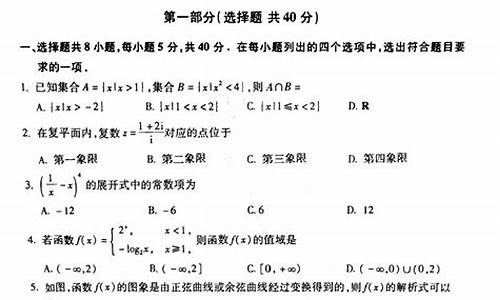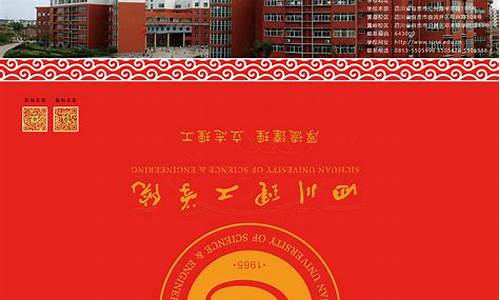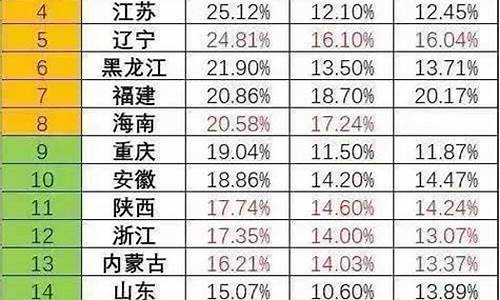您现在的位置是: 首页 > 教育科技 教育科技
高考英语福建卷2013,高考英语福建卷2013答案
tamoadmin 2024-05-26 人已围观
简介1.求英语高考题精选15道2.福建高考卷是全国几卷3.福建省高考英语口语试题4.2013年新课标全国卷的省份有哪些?(最好分开科目说,主要说理综)5.2013年高考全国共有几套卷?6.2013年高考都哪些地区的高考试卷一样?河南和云南一套么?权威点回答!2023年高考英语试题难度整体差别不大,完形填空有点烧脑,阅读理解还可以,极个别的选项有点抽象,需要推理。虽然很多同学对英语很头疼,但是英语在20
1.求英语高考题精选15道
2.福建高考卷是全国几卷
3.福建省高考英语口语试题
4.2013年新课标全国卷的省份有哪些?(最好分开科目说,主要说理综)
5.2013年高考全国共有几套卷?
6.2013年高考都哪些地区的高考试卷一样?河南和云南一套么?权威点回答!

2023年高考英语试题难度整体差别不大,完形填空有点烧脑,阅读理解还可以,极个别的选项有点抽象,需要推理。
虽然很多同学对英语很头疼,但是英语在2023年的时候是不会退出高考的,因为2023年英语还是作为一个必考的科目去进行考试的,然后在以后的一个演化过程里面,就可能是变为在不同的时期进行考核,或者是分成几次考试去进行考核这样子的一个状态,但是说英语完全退出高考是不可能发生的。
我们从小到大经历的考试像中考,高考等等都是考英语的,甚至研究生考试也考英语。因为英语目前还是作为全球性的第一外语就是说全世界上用英语这样子的一个语言的人还是大有人在的,并且自己国家需要学英语的一个重要性还是比较强的。
所以说英语在这样子的一个基础性教育以及阶段性教育是不会取消的,而且在这样子的一个高考大考里面也是不会取消第一外语这样子的一个地位的。所以说最后的结论就是英语在2023年里面是不会退出的。英语的重要性英语的重要性不仅体现在高考上,也体现在大学和工作场所。
即使取消或减少高考英语,许多大学仍然对学生的英语四、六级考试有要求。在找工作时,更高的英语水平将成为考生的强大竞争力。总之,英语高考短期内不会取消或减少。所有的学生都应该平等对待任何一门学科,提高自己的综合实力,以便在未来有更多的发展机会。
从近十年来的高考试卷难度来看,总体上呈现出下降趋势。这可能与高考改革的推进有关,其中包括内容的优化、命题方式的改进、考生素质的提高等因素。
不过,需要注意的是,难度系数提高,高考录取分数线必然下降;反之,高考录取分数线必然上升。这意味着,难度系数并不能单独拿来判断高考的难度,还需要考虑到录取分数线的变化。
总之,每年的高考难度都有其特殊的情况和变化,不能简单地以某一年的高考难度作为判断标准。每个考生都应该以平常心对待高考,踏实备考,发挥自己的水平和实力,相信自己一定能够取得好成绩。
求英语高考题精选15道
福建省高考所有科目从2016年起开始使用全国一卷,也就是新课标Ⅰ卷,也叫全国乙卷。
2016年之前福建所有科目全部自主命题,英语听力使用新课标全国卷英语听力。
从2016年开始,新课标全国卷分为Ⅰ卷、Ⅱ卷、Ⅲ卷。并且从2016年开始,全国Ⅰ、Ⅱ、Ⅲ卷分别改称为全国乙、甲、丙卷。小语种(日语/俄语/法语/德语/西班牙语)高考统一使用全国卷,各省均无自主命题权,且不分甲、乙、丙卷。
2018年起使用全国一卷的省区:山西、河北、河南、安徽、湖北、湖南、江西、福建、广东、山东、浙江(英语听力部分)。
扩展资料:
全国乙卷的命题特征:
1、考查内容与新课程匹配。
2、根据新课程的特征,分必考与选考题。
3、命题以考试大纲为依据,以课本教材为依托,考察学生综合能力。
高考试题全国卷简称全国卷,它是由教育部考试中心组织命制的、适用于全国大部分省区的高考试卷,目的在于保证人才选拔的公正性。
全国卷分为全国甲卷、全国乙卷和全国丙卷。从2013年开始,新课标全国卷分为Ⅰ卷、Ⅱ卷。从2016年开始,新课标全国卷分为Ⅰ卷、Ⅱ卷、Ⅲ卷。
参考资料:
福建高考卷是全国几卷
.(10福建25)
Lots of rescue workers were working around the clock, supplies to Yushu, Qinghai
Province after the earthquake.A. sending B. to send C. having sent D. to have sent答案:A
考点:非谓语动词
解析:表示伴随。从 “were working”可以判断是进行时态,排除C。
2.(10福建34)
In April, thousands of holidaymakers remained abroad due to the volcanic ash cloud.A. sticking B. stuck C. to be stuck D. to have stuck答案:B
考点:remain后接动词的用法
解析:remain是高考的重点词汇。当它做系动词时,后面接过去分词作表语。
3.(10上海33)
Lucy has a great sense of humor and always keeps her colleagues with her stories.
A. amused B. amusing C. to amuse D. to be amused
答案:A
考点:本题考查非谓语动词。
解析:keep+sb. /sth. +done,根据句意,sb.与它后面的动词成被动关系,故选A.
4.(10上海35)
the city center, we saw a stone statue of about 10 meters in height.
A. Approaching B. Approached C. To approach D. To be approached
答案:A
考点:本题考查非谓语动词。
解析:考察现在分词作状语,表示正在进行或主动的动作。此时分词的逻辑主语就是主句的主语,因此要注意人称、时态和语态的一致性。
5. (10上海40)
Thai is the only way we can imagine the overuse of water in students' bathrooms.
A. reducing B. to reduce C. reduced D. reduce
答案:B
考点:此处考查非谓语动词。
解析:此处应该用不定式the way to do sth表示做……的途径、方式。the only way to do……,we can imagine 做定语,前面省略了that.
6.(10安徽30)
He had a wonderful childhood, _____with his mother to all corners of the world
A. travel B. to travel C. traveled D. traveling
答案:D.
考点:本题考查非谓语动词作状语。
解析:主语(he)与动词travel之间存在主动关系,故用traveling作原因状语。
7.(10湖南21)
Listen! Do you hear someone for help?
A. calling B. call C. to call D. called
答案:A
考点:考查非谓语动词。
解析:该空在句中为非谓语动词作宾补,根据 someone与call的主动关系排除D项。Hear
后接不定式作宾补时应省略to,由此排除C项。由Listen可判断此处表示正在求救,故
选A项。
8.(10湖南26)
Dina, for months to find a job as a waitress, finally took a position at a local advertising agency.
A. struggling B. struggled C. having struggled D. to struggle
答案:C
考点:考查非谓语动词。
解析:该空,分词短语作时间状语,其逻辑主语Dina与struggle为主动关系,故排除B项。由剧中的finally可知非谓语动词表示的动作发生在句中谓语took a position之前,故用现在分词的完成主动式。
9.(10湖南30)
So far nobody has claimed the money in the library.
A. discovered B. to be discovered
C. discovering D. having discovered
答案:A
考点:考查非谓语动词
解析:该空在句中作后置定语修饰the money,根据the money与discover的被动关系,排除C、D两项。B项表示的是“将要被发现”的意思,根据句意“到目前为止还没有人来认领在图书馆被发现的钱”可判断选A项。
10.(10江西24)
The lady walked around the shops, _______ an eye out for bargains.
A keep B kept C keeping D to keep
答案:C
考点:考察非谓语。
解析:句子主语lady和keep 之间是主动关系, 而且walk和keep 同时发生。
11.(10江西32)
There were many talented actors out there just waiting ______.
A to discover B to be discovered
C discovered D being discovered
答案:B.
考点:考察非谓语。
解析:演员等待被发现, 用被动, 发现发生在等待之后, 所以用不定式.
12.(10山东23)
I have a lot of readings _____ before the end of this term.
A. completing B. to complete
C. completed D. being completed
答案:B
考点:本题考查非谓语动词的使用。
解析:句意应为“这个学期结束前,我要做很多阅读练习。”由于时间状语before the end
of this term表达未来的时间,所以空格处使用动词不定式表示将来,充当readings的定
13. (10天津12)
It rained heavily in the south, serious flooding in several provinces.
A. caused B. having caused C. causing D. to cause
答案:C.
考点:考查非谓语动词。
句意:南方下了大雨,在几个省区造成严重洪灾。
解析:空格后serious flooding是rained heavily的后果,而且句子主语it和cause之间存在主动关系,所以此处要用动词的ing形式作结果状语
14.(10四川4)
A great number of students said they were forced to practise the piano.
A. to question B. to be questioned
C. questioned D. questioning
答案:C
考点:考查非谓语动词作定语。
解析: question与students 存在被动关系,question表示的动作也已完成,故用过去分
词。
15.(10四川17)
The lawyer listened with full attention, to miss any point.
A.not trying B.trying not
C.to try not D.not to try
答案:B考点:考查现在分词短语做伴随状语及动词不定式的否定式。
解析:句中listen和try not to miss为同时进行的动作,故用现在分词的一般式做伴随状语。又动词不定式的否定式要在其前加not.故选B。
福建省高考英语口语试题
2023福建高考卷是全国新课标1卷。
2023年福建高考模式:
2023年福建高考时间是6月7日-9日,共计3天,试卷类型为新课标1卷,福建省普通高考实行“3+1+2”模式,考试科目由全国统考科目和普通高中学业水平选择性考试科目组成。
2023年福建高考科目安排:
2023年,福建普通高校招生考试包括统一高考和普通高中学业水平选择性考试。
统一高考科目为语文、数学、外语3门,其中,外语科目分为英语、俄语、日语、德语、法语、西班牙语等6个语种,考生任选其中1个语种参加考试。统一高考科目试题由教育部统一命制。
选择性考试科目为思想政治、历史、地理、物理、化学、生物6门,考生须从历史、物理2门首选科目中选择1门,再从思想政治、地理、化学、生物4门再选科目中选择2门参加考试。选择性考试科目试题由福建省自主命制。
2023年福建高考普通类志愿填报规则:
本科提前批:
设常规志愿和1次征求志愿。常规志愿设1个第一志愿和3个平行且有顺序排列的参考志愿,征求志愿设8个平行且有顺序排列的志愿。每个志愿均为院校专业组志愿,均设6个专业志愿和是否服从专业调剂栏目。
本科批:
设常规志愿和2次征求志愿。常规志愿设40个平行且有顺序排列的院校专业组志愿,每次征求志愿均设20个平行且有顺序排列的院校专业组志愿。每个院校专业组志愿均设6个专业志愿和是否服从专业调剂栏目。
考生不得重复填报同一个“院校专业组”志愿,即考生填报的“院校专业组”志愿均须为不同的“院校专业组”。
高职(专科)批:
设常规志愿和2次征求志愿。常规志愿设40个平行且有顺序排列的专业志愿,每次征求志愿均设20个平行且有顺序排列的专业志愿。
2013年新课标全国卷的省份有哪些?(最好分开科目说,主要说理综)
2008 高考口语试题
第一、二套题 回答问题
1. How do you like your school?
2. What present will you give to your mother on her birthday?
3. What present will you give to your father on his birthday?
4. What will you do to protect yourself when an earthquake broke out?
5. What should you do before leaving the lab?
6. Please say something about either of your parents.
7. Will you introduce yourself briefly?
8. Do you like traveling? Why or why not?
9. What sports do you like best? Why?
10. What do you think of your head teacher?
11. How do you improve your English?
12. Say something about your family.
第三份
1. What do you think of Sichuan earthquake?
2. Please say something about your family.
3. Where would you like to go for your holidays?
第四套:
第一份
1. Who is your favourite singer? Why?
2. How do you improve your English reading?
3. How do you like your English teacher?
第二份
1. Do you like traveling? Where have you been? Which place impressed you most? Why?
2. How do you like your school?
3. How do you improve your English listening?
第三份
1. Who is your favourite sports star? Why?
2. How do you improve your oral English?
3. Do you like your head teacher? Why or why not?
三:
( 1 ) Dinner starts with a small dish, which is often called a starter. Some people pray before they start eating, and other people may keep silent for a moment. Then you can say “Enjoy your meal” to each other and everybody starts eating. For the starter, which you eat with the smaller pair, you keep the knife in your right hand and the fork in your left. After the starter you will get a bowl of soup – but only one bowl of soup and never ask for a second serving.
The next dish is the main course. Many Westerners think the chicken breast with its tender white flesh is the best part of the bird. Some people can use their fingers when they are eating chicken or other birds, but never touch beef or the meat on bones. It is polite to finish eating everything on your plate, so don’t take more food than you need.
( 2 ) Chuck learns how to be a good friend to Wilson. Even though Wilson is just a volleyball, he becomes fond of him. He talks to him and treats him as a friend. Chuck learns that we need friends to share happiness and sorrow, and that it is important to have someone to care about. He also learns that he should have cared more about his friends. When he makes friends with Wilson, he understands that friendship is about feelings and that we must give as much as we take.
A volleyball is certainly an unusual friend. Most of our friends are human beings, but we also make friends with animals and even things. For example ,many of us have pets, and we all have favourite objects such as a lucky pen or a diary. The lesson we can learn from Chuck and all the others who have unusual friends is that friends are teachers. Friendship helps us understand who we are, why we need each other and what we can do for each other.
( 3 ) Rock and pop music are becoming more and more similar, but
Rock and pop music are becoming more and more similar, but there are still some differences. Most pop singers use the music to make money and become rich and famous. Rock singers, on the other hand, make music their life. They play music to make themselves feel better and happier. They do not think how much money they can make from a song, instead, they sing for their feelings and live for music.
Pop songs and rock songs are written in different ways. A pop song is written in a "factory" where one person writes the words, someone else writes the music, and other musicians record it. The singer often knows little about the ideas or feelings behind the song. As for rock music, however, the singers and musicians are all able to write music and work together in a band. When one of them has a strong feeling, he or she expressed it with music and the others help build the song.
四:朗读文章
(1)In 1996,Atlanta was the host of the Olympic Games, an honor the city shared with great cities such as Sydney and Beijing.
(2)Like all of us, disabled people also need inspiration and encouragement. The magazine Literature of Chinese Blind Children was started by Xu Bailun in 1985, when he decided that there should be a magazine for blind people in China. Blind children all over China read the magazine and it has inspired many of them to believe that they can realize their dreams. The articles in the magazine are often about disabled people who have overcome difficulties and learn to live a meaningful and productive life.
About one-third of the articles in Literature of Chinese Blind Children are written by disabled authors and blind children. One of the magazine’s best-known readers is Ye Zijie, who is now a teacher in Huhhot. In the year 2000, he was invited to study in London and became the first visually impaired Chinese to study abroad. Zijie says he was inspired and motivated by the magazine: “It is very important for us to know that someone far away is also struggling as we are.”
( 3 ) When we describe or talk about new inventions, we use words and ideas that we already know. For example, when we want to
When we describe or talk about new inventions, we use words and ideas that we already know. For example, when we want to explain how a computer works, we use words like “memory”, “store” and “cut and paste”. The words are useful, but they are not quite true. A computer’s “memory” is similar to human memory in some ways, but it is also very different. A computer does keep information in its memory, but that is clearly different from other kinds of storage. We do cut and paste, but we don’t use scissors or glue. Using familiar words makes it easier for us to understand and use a new tool, but it may also make it more difficult for us to use the new invention in the best way. After all, what makes a new invention such a wonderful thing is that it allows us to do something we could not do before.
Science is not just about electronics and plastic; it is also about how we think about the world. Now that we are developing new technology at such a high pace, the true challenge is to find new ways of using it. How will we use computers in the future?
第一套
(一)
1、Do you like your monitor? Why? Why not?
2、Is your English teacher strict with you in your studies? How?
3、How are you getting along with your classmates?
(二)
1、What kind of music do you like best?
2、What do you think of your English teacher?
3、Who is your best friend? Say something about him\her.
(三)
1、Do you often use dictionaries when you learn English?
2、what date is your birthday?
3、How do you like your mother?
第二套
(一)
1、Do you often play football/table tennis/volleyball/ Why? Why not?
2、Which do you like better,watching TV or seeing movies?
3、Please say something about your family.
(二)
1、Do you enjoy music? Why? Why not?
2、What's your favourite subject?
3、What do you often do on Sundays?
(三)
1、Do you buy any presents for your parents on their birthdays?
2、What sport do you like best?
3、What are you going to do during summer holidays?
第三套
(一)
1、 Do you often listen to English programs? Why? Why not?
2、What do you do in your spare time?
3、Do you like your school? Why? Why not?
(二)
1、Do you often watch TV? Why? Why not?
2、What are you going to be in the future?
3、Who is your favourite teacher? Please say something about him/her.
(三)
1、How do you usually spend your weekends?
2、Do you have any penfriends? Please say something about him/her?
3、What do you usually do in your spare time?
第四套
(一)
1、Do you like sports? Why? Why not?
2、What did you do after the collage entrance examinations?
3、Please say something about one of your good friends.
(二)
1、Do you think collecting stamps interesting? Why? Why not?
2、What subjects did you study?
3、What do you do to improve your English?
(三)
1、What's your favourite food?
2、How long did you spend on your homework every day?
3、Could you please say something about your school?
第五套
(一)
1、Is it important to learn English? Why? Why not?
2、How many classed did you have in Senior Three every day?
3、What do you do to keep fit?
(二)
1、Do you like English? Why? Why not?
2、How are you getting along with your school life?
3、Who is your favourite teacher? Please say something about him/her.
(三)
1、What subject do you like best? Why?
2、How often do you watch TV?
3、Wh第一套
第一份
1、Why do you study English?
2、Which season do you like best? Why?
3、What are your parents?
第二份
1、How do you learn English?
2、Which subject do you like best? Why?
3、How will you spend your summer holidays?
第三份
1、Do you like English? Why?
2、How do your parents celebrate your birthday?
3、Is your hometown beautiful? Say something about your hometown.
第二套
第一份
1、When will the 29th Olympic Games be held in Beijing?
2、Do you celebrate your birthday? How ?
3、What‘s your favourite food? Why?
第二份
1、What do you usually do for your holiday?
2、What do you think you can do for the disabled people?
3、How do you spend your spare time?
第三份
1、Do you like playing computer games? Why? Why not?
2、Is the computer useful in our daily life? Please give some examples. 3、Say something about your hobby, please.
at's your interest? Please say something about it?
第三套
第一份
1、Do you think spoken English is important? Why? Why not?
2、What‘s your favorite subject?
3、How do you usually celebrate your parents‘ birthday?
第二份
1、How do you like your Chinese teacher?
2、How do you usually celebrate your birthday?
3、Do you often do something good for your class? How?
第三份
1、How much time do you spend on English reading everyday?
2、What does your father do?
3、Is the city/village where you are living beautiful?
第四套
第一份
1、What‘s your favorite sport? Why/Why not?
2、How many classes are there in your school?
3、Are you good at English?
第二份
1、Which is your favorite university?
2、What subject are you good at?
3、Could you tell me something about your family?
第三份
1、How often do you go to see a film/ 2、How far is it from your home to your school?
3、Do you often help do housework?
第五套
第一份
1、What is your favorite subject? Why?
2、How do you usually spend your weekends?
3、What do you think of your school? Please describe it.
第二份
1、How do you usually celebrate your birthday?
2、Do you want to take English as your major? Why? Why not?
3、Can you tell us something about your English teacher?
第三份
1、Do you often ask your English teacher questions? Why/ Why not?
2、How can you improve your spoken English?
3、Would you please give a brief introduction of your family?
第六套
第一份
1、How do you find your English teacher?
2、Do you love music? Why/Why not?
3.Which university do you like best? Why?
第二份
1、Do you often watch TV at home? Which channel?/Why not?
2、How do you usually spend your weekends?
3、What are you going to be in the future?
第三份
1、Do you love your hometown?Why?/ Why not?
2、What is your favorite sport?
3、What do you often do in your spare time?
第一套
I、
1、Do you like music? Why/Why not?
2、What subject do you like best? Why?
3、Why do you learn spoken English?
II、
1、Do you like spoken English? Why/Why not?
2、Do you listen to music while you are studying?Why/Why not?
3、What will you do if you have a lot of money?
III、
1、Do you think friends are important to you? Why/Why not?
2、Please say sth about one of your best friends.
3、What TV programme do you like best? Why?
第二套
I、
1、Do you often watch TV? Why/Why not?
2、What are your hobbies? Please say sth about them.
3、How do you celebrate your birthday?
II、
1、How do you spend your weekends?
2、What‘s your favourite sport? Why?
3、Do you think money is very important to you?
III、
1、Do you think friendship is important to you? Why/Why not?
2、What is your favorite food? Why?
3、Do you like animals? Why/Why not?
第三套
I、
1、Please say sth about your hometown.
2、Do you often play computer games? Why/Why not?
3、What is your favorite university?Why?
II、
1、How do you spend your spare time?
2、Please say sth about one of your good friends
3、Do you love your school? Why/Why not?
III、
1、Do you like to have a part-time job?Why/Why not?
2、How do you find your English teacher?
3.What is your favorite subject?Why?
第四套
I、
1、How do you practise your spoken English?
2、Do you remember your parents‘ birthday?How do you celebrate them?
3、What season do you like best?Why?
II、
1、Would you please introduce your family?
2、Do you like fast food?Why/Why not?
3、Do you think friendship is important to you?Why/Why not?
III、
1、Do you share your feelings with your friends?Why/Why not?
2、Are you ready to help others?Why/Why not?
3、How do you improve your spoken English?
第五套
I、
1、Do you keep any pets?Why/Why not?
2、How will you spend your holidays this summer?
3、Do you like traveling?Why/Why not?
II、
1、How do you spend your pocket money?
2、Where would you like to travel?Why?
3、Do you think that good memory is important in learning English?Why/Why not?
III、
1、What kind of music do you like?
2、What do you do to improve your English?
3、Say sth about your hobby,please.
就只找到这些 希望对你有帮助
2013年高考全国共有几套卷?
目前使用全国一卷的省份有:河南、山西、新疆、宁夏、吉林、黑龙江、河北、云南
备注:有些省份只会使用全国一卷的文、理综或者语、数、英
例如:2013年高考试题使用可能为有如下版本:
01、新课标全国卷(Ⅰ)使用省份:河南、山西、新疆、宁夏、吉林、黑龙江、
内蒙古、河北、云南;
新课标全国卷(Ⅱ)使用省份:青海、西藏、甘肃、贵州。
02、大纲版全国卷适用地区:广西
03、北京市:所有科目全部自主命题
04、天津市:所有科目全部自主命题
05、上海市:所有科目全部自主命题
06、重庆市:所有科目全部自主命题
07、安徽省:所有科目全部自主命题
08、山东省:所有科目全部自主命题
09、广东省:所有科目全部自主命题
10、江苏省:所有科目全部自主命题
11、浙江省:所有科目全部自主命题
12、四川省:所有科目全部自主命题,2013年实行新课改
13、福建省:所有科目全部自主命题,英语听力使用新课标全国卷英语听力
14、湖北省:自主命题(语、数、英)+新课标全国卷(文综、理综)
15、湖南省:自主命题(语、数、英)+新课标全国卷(文综、理综)
16、江西卷:自主命题(语、数、英)+新课标全国卷(文综、理综)
17、陕西省:自主命题(数、英)+新课标全国卷(语、文综、理综)
18、辽宁省:自主命题(语、数、英)+新课标全国卷(文综、理综)
19、海南省:自主命题(政、史、地、理、化、生)+新课标全国卷(语、数、英)
使用全国二卷的省份有:青海、西藏、甘肃、贵州、内蒙古 (由于教育水平、区域差异,这些省份不会和已经使用新课标全国卷的教育强省使用同一份试卷。)
2013年高考都哪些地区的高考试卷一样?河南和云南一套么?权威点回答!
分为Ⅰ卷、Ⅱ卷。
从2013年开始,新课标全国卷分为Ⅰ卷、Ⅱ卷。从2016年开始,新课标全国卷分为Ⅰ卷、Ⅱ卷、Ⅲ卷。并且从2016年开始,全国Ⅰ、Ⅱ、Ⅲ卷分别改称为全国乙、甲、丙卷。
贵州、甘肃、青海、西藏加入新课标高考。由于这些省份的加入,新课标全国卷开始分成Ⅰ 卷和Ⅱ卷。河南、河北、山西、陕西语文及综合、湖南综合、江西综合、湖北综合采用全国Ⅰ 卷;贵州、甘肃、青海、西藏、新疆、云南、内蒙古、黑龙江、吉林、宁夏、海南语数英、辽宁综合采用全国Ⅱ卷。
扩展资料:
高考的相关要求规定:
1、2014年上半年,教育部将发布总体方案及高考改革等各领域改革实施意见,有条件的省份开始综合改革试点或专项改革试点,2017年,总结成效和经验,推广实施,到2020年,基本形成新的考试招生制度。
2、2014年9月国务院印发了《关于深化考试招生制度改革的实施意见》,《意见》规定,2014年在上海市和浙江省启动了高考综合改革的试点,2017年将全面推进。
3、在实行高考综合改革的省(区、市),计入高校招生录取总成绩的学业水平考试3个科目,由学生根据报考高校要求和自身特长,在思想政治、历史、地理、物理、化学、生物等科目中自主选择。学生可以在完成必修内容的学习,在对自己的兴趣和优势有一定了解后确定选考科目。
百度百科-高考试题全国卷
01、新课标全国卷适用地区:河南、山西、新疆、宁夏、吉林、黑龙江、内蒙古、河北、云南、青海、西藏、甘肃、贵州
02、大纲版全国卷适用地区:广西(备注:广西官方一直未表态2013年高考是否改革,很有可能2013年将继续使用大纲版全国卷)
03、安徽省:所有科目全部自主命题
04、北京市:所有科目全部自主命题
05、重庆市:所有科目全部自主命题
06、福建省:所有科目全部自主命题,英语听力使用新课标全国卷英语听力
07、广东省:所有科目全部自主命题
08、海南省:自主命题(政、史、地、理、化、生)+新课标全国卷(语、数、英)
09、湖北省:自主命题(语、数、英)+新课标全国卷(文综、理综)
10、湖南省:自主命题(语、数、英)+新课标全国卷(文综、理综)
11、江苏省:所有科目全部自主命题
12、江西卷:自主命题(语、数、英)+新课标全国卷(文综、理综)
13、山东省:所有科目全部自主命题
14、上海市:所有科目全部自主命题
15、陕西省:自主命题(数、英)+新课标全国卷(语、文综、理综)
16、四川省:所有科目全部自主命题,2013年实行新课改
17、天津市:所有科目全部自主命题
18、浙江省:所有科目全部自主命题
19、辽宁省:自主命题(语、数、英)+新课标全国卷(文综、理综)









